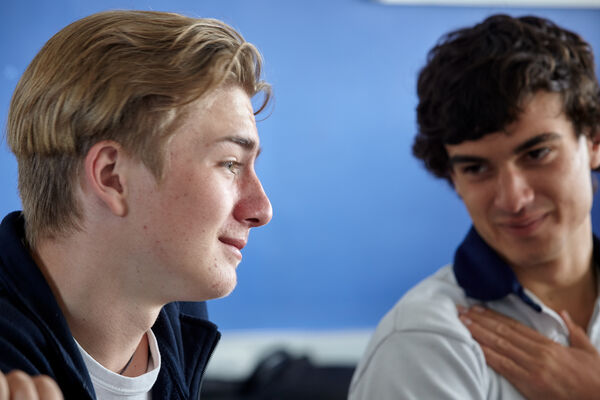Overview
Alignment with Be You Domains
-
Mentally Healthy Communities
-
Family Partnerships
-
Learning Resilience
-
Responding Together
Alignment with Australian Curriculum
- Health and PE
Target audience
- Secondary school
Target groups
- Whole class
Aims
The Rite Journey is a year-long program that acknowledges and celebrates each young person's shift into adulthood by building self-awareness, identifying strengths, and providing conversations and experiences to guide the transition. It also aims to improve the school culture by further developing skills in responsibility, respect, resilience and resourcefulness.Program theory
The program draws on constructivism, brain-based learning theory, social learning theory, social cognition learning mode, Piaget's theory of cognitive development, control theory and transformational learning.Topics
Four themes are covered: 'Who am I really?', 'How do I get along with others?', 'Is there something more?', 'What do I have to give?'. Some examples of the many topics within each theme include gender identity, construction and stereotypes, introversion and extroversion, anger and managing anger, apologising and forgiving, fact checking, inherited beliefs, purpose, and the adult I want to be.Cost
Program structure
The program is delivered by teachers at the school who have undertaken the 2-day training. It is best implemented over one year with 2 or 3 lessons a week.Instructor
- Educator
Instructor training
2-day training on site at the schoolSupporting resources or materials available with program
- Manual
- Workbook
Other materials
Access to website resourcesOngoing support
The Teacher Guidebook includes preparation and guidance information for each conversation. Another 500+ resources are available online. A conference and state-based 'Teach Meet' are each held in alternating years.Parent involvement
- Attend information sessions
- Parent handbook
- Online resources
Origin of program
Australia
The Rite Journey
Program authors
Andrew Lines, Graham Gallasch, Jane Bennett
Ratings
Summary of evidence factors
This is a summary of the evaluation or research study characteristics that contribute to the program’s evidence rating.
|
Positive impact on at least one outcome for children and/or young people?
The study reported positive outcomes. |
No |
|---|---|
|
Link between program description and theory of change
Theory of change refers to whether there was a comprehensive description and illustration of how and why a desired change is expected to happen in a particular context. |
Comprehensive |
|
Study design
Type of study design reported. |
Qualitative/Post cohort |
|
Independence
The degree to which the program authors were involved in the research. |
Completely |
Summary of implementation factors
This is a summary of the program’s characteristics that contribute to its implementation rating.
|
Feedback sought from participants
Participants enjoyed the program and understood its benefits. |
Yes |
|---|---|
|
Feedback sought from instructors
Instructors enjoyed the program and understood its benefits. |
Yes |
|
Groups program is not suitable for
Groups the program wouldn't be suitable for or that required further research to determine suitability. |
Not assessed |
|
Training provided during study
The model of training provided. |
Face to face, all instructors, in person |
|
Ongoing instructor support provided during study
Whether ongoing support is provided. |
No |
Context
This is a summary of the context in which the evidence for the program was established.
|
Study Participants
Pre school, primary school (Foundation to Year 6), secondary school (Years 7 to 12). |
Secondary school |
|---|---|
|
Country of Study/s
The location in which the evidence or research was conducted. |
Australia |
|
Location of Study/s in Australia
The state (or states) the program was assessed in Australia. |
|
|
Evaluation of program in culturally and linguistically diverse populations
Provider has included culturally and linguistically diverse people when assessing the program. |
No |
|
Evaluation of program in Aboriginal and Torres Strait Islander children and young people
Provider has included Aboriginal and Torres Strait Islander peoples when assessing the program. |
No |
|
Evaluation of program in low socioeconomic groups
Program has evaluated a diverse socio-economic population in their research. |
No |
|
Developmental based adaptations to program design and delivery
Shorter sessions for younger students or activities are adjusted for age appropriateness. |
No |
|
Evaluation of program in children and young people with disability and/or learning difference
Provider has included participants with a disability or learning difference when assessing the program. |
No |
Last updated: 24 May 2023
